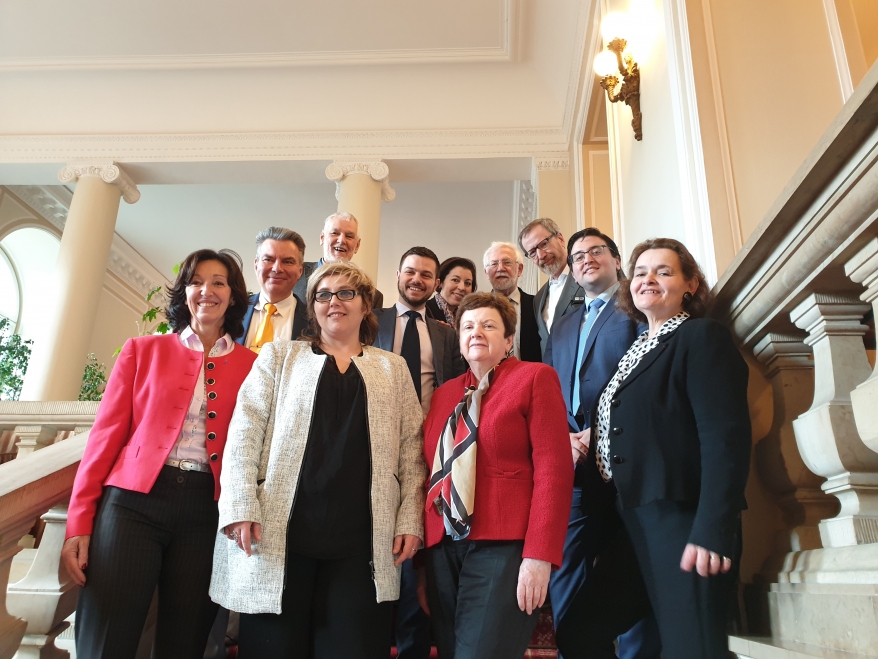Following its commitment as an international non-governmental organization (INGO) with participatory status at the Council of Europe (COE), Eurodoc representatives to the COE, Farouk Allouche and Auréa Cophignon attended the first World NGO day organized by the conference of INGOs of the COE on February 27, 2019 at the Palais de l’Europe in Strasbourg. At the conference, the role of NGOs in the COE structure was discussed, specifically addressing the time and financial cost for their members to work on human rights and democracy, as well as future perspectives of NGO participation in the COE.
Eurodoc stressed the importance of ensuring independent financial resources for NGOs through the creation of an independent fund. Eurodoc also stressed the role of education in strengthening democracies and welcomed the highly valuable reference framework of Competencies for Democratic Culture (RFCDC) that has been developed by the Council of Europe and highlighted the interest for Eurodoc to follow up the implementation of such competencies at higher education level too. Eurodoc reiterated its commitment as an observer member of the Educational Policy Advisors Network to actively participate in this crucial task in the future.
Eurodoc official representative to the COE, Farouk Allouche, together with Eurodoc Polish national organization administrators (KRD) Ewelina Pabjanczyk-Wlazlo, Beata Zwierzynska and Agnieszka Zyra attended the Warsaw conference on the role and position of NGOs in the COE. The conference, which was organized in the context of the Warsaw Declaration (2005) and its action plans by the Council of Europe, the Polish Ministry of Foreign Affairs and the University of Warsaw, addressed the different aspects, limits and possibilities of interactions between NGOs and intergovernmental institutions like the COE.
A high level panel focused on the current situation, obstacles, priorities and mechanisms of participation for NGOs. A subsequent panel discussion made a comparison between different models of interactions between NGOs and international organizations namely the United Nations, Organisation for Security and Cooperation in Europe, European Union Fundamental Rights Agency and the very special participatory status of NGOs at COE level. Particular focus was given to highlighting the commitment required at a higher educational level, equal opportunities to participate and enhancing gender equality policies at European and international levels. Following on from this, a second panel addressed potential improvement of NGO participation in policy making at COE level. Eurodoc welcomes the positive approach of ambassadors to further involve NGOs in COE policy-making procedures.
Following these events, summary statements had been communicated at the “Education Policy Advisers' Network (EPAN) meeting on education in building a culture of democracy and human rights in Europe” in Helsinki on 16-17 April to provide the committee of ministers with ideas and tools of action to address civil society participation at COE level. Furthermore, Eurodoc will attend the next session of the conference of INGOs of the COE, in which the new code of conduct of NGOs and their representatives will be adopted. The aim of the proposed document is to ensure transparency and exemplary conduct of the conference and its members, and to discuss other topics related to education and culture, human rights and social cohesion.
Farouk Allouche, Eurodoc official representative to the Council of Europe

